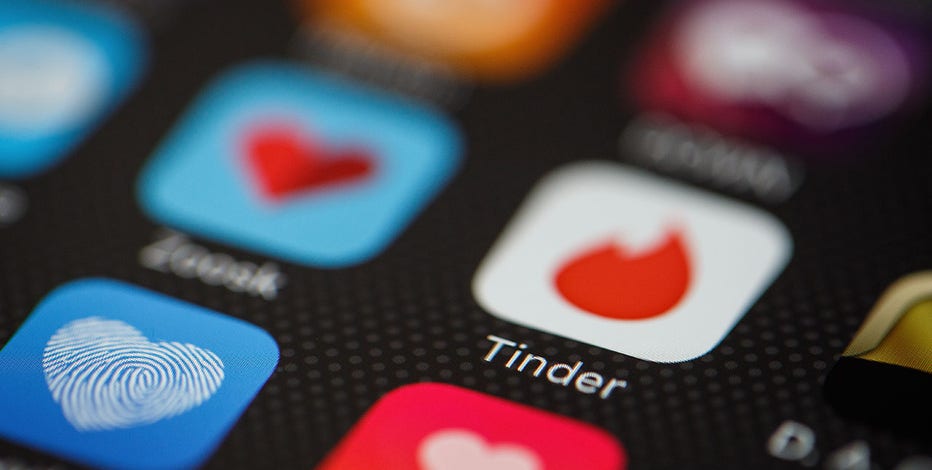This browser does not support the Video element.
Most, least safe states for online dating
Researchers crunched government statistics to determine the least and most safe states for online dating.
Tinder and Hinge will be rolling out new protective features to make matching and dating safer for users.
Last week, the popular dating apps announced they will launch safety features including Tinder’s "Share My Date" and Hinge’s "Hidden Words."
Research shows that online harassment has been on the rise across all digital spaces – particularly for vulnerable groups like women, BIPOC and LGBTQ+ users.
Here’s what you need to know about the new updates.
Tinder app launches Share My Date
On April 22, Tinder announced Share My Date – a feature that lets users share their date plans directly with friends and family from the app.
According to the Los Angeles-based company, more than half of single users under 30 already let their friends know the details of their dates, and one in five Tinder users share their date plans with their mom.

The "Tinder" app logo is seen amongst other dating apps on a mobile phone screen. (Credit: Leon Neal/Getty Images)
"At Tinder, we continue to release new features that aim to create a fun, safe, and respectful experience for all," said Tinder’s Chief Marketing Officer Melissa Hobley.
With Share My Date, users can share information including the location, date and time of the date, along with a photo of their match. Users can decide who they want to share their information with and can create an unlimited number of dates within the app up to 30 days in advance.
Tinder will roll out new feature called "Share My Date." (Credit: Tinder)
Date plans are also editable, so if plans change at the last minute, Tinder said users can update the info in the app to keep their friends and loved ones updated.
The new feature is scheduled to roll out across the U.S., along with many countries in the coming months.
Hinge launches Hidden Words
Hinge released Hidden-Words on April 24, a new feature that gives daters across the globe the ability to filter the words, phrases and emojis in their incoming likes with comments.
The dating platform said it will help to "reduce unwanted interactions while increasing safety and confidence on their dating journey."
According to Hinge, Hidden Words aims to help users customize their experience, creating a more comfortable space to show up as their authentic selves.
Hinge's new feature "Hidden Words" displayed on mobile device. (Credit: Hinge)
"Meaningful connections can only happen when people feel safe," the New York-based company said in its release, adding that the new feature can help support daters by detouring a negative interaction before it starts.
According to Hinge, daters can create a personalized list of words, phrases or emojis they don’t want to see in their inbound Likes with Comments. Likes that come with comments including unwanted terms from a user’s custom list will not show up in that user’s total like count.
Instead, they will be moved to a separate category where users can individually review them at any point they wish, or delete them without ever opening them.
"At Hinge, we believe in creating an environment where everyone can feel safe and respected, which is integral to building genuine connections," said Jeff Dunn, Hinge’s vice president of Trust and Safety. "Our hope is that with Hidden Words, users will feel reassured they can explore potential connections in a way that’s most comfortable to them, leading to safer and more satisfying dating experiences."
What is Tinder used for?
Launched in 2012, Tinder is available in 190 countries. More than half of all users are between 18-25 years old.
When you want to meet new people, Tinder said it can help you out with features designed to make the "impossible possible," adding that "dating online just got easier."
About Hinge dating app
Hinge, which also launched in 2012, said that it is on a mission to "create a less lonely world by inspiring intimate, in-person connections."
Through in-depth and personalized profiles, daters have unique conversations that get them off the app and out on great dates.
Hinge said it is setting up a date every two seconds, and that the app is "designed to be deleted."
This story was reported from Los Angeles.
